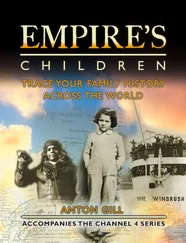
I am extremely grateful to those friends who gave generously of their time to read earlier drafts of the entire book, and whose insights and suggestions saved me from copious blunders and inspired many improvements: Jennie Barbour, Michal Deutscher, Andreas Dorschel, Avrahamit Edan, Stephen Fry, Bert Kouwenberg, Peter Matthews, Ferdinand von Mengden, Anna Morpurgo Davies, Reviel Netz, Uri Rom, Jan Hendrik Schmidt, Michael Steen, and Balázs Szendr i.
The manuscript benefited enormously from the professional scrutiny of my agent, Caroline Dawnay, and my editors, Drummond Moir, Jonathan Beck, and above all Sara Bershtel, whose incisive insertions and excisions were invaluable for navigating out of numerous cul-de-sacs and wrong turnings. I am grateful to all of them, as well as to Zoë Pagnamenta, my copy editor Roslyn Schloss, and Grigory Tovbis at Metropolitan.

I would also like to thank all those who provided helpful information or corrections, especially Sasha Aikhenvald, Mira Ariel, Eleanor Coghill, Bob Dixon, David Fleck, Luca Grillo, Kristina Henschke, Yaron Matras, Robert Meekings, John Mollon, Jan Erik Olsén, Jan Schnupp, Eva Schultze-Berndt, Kriszta Szendr i, Thomas Widlok, Gábor Zemplén.
Most of all, I am grateful to Janie Steen, whose help cannot be quantified, and without whom the book would never have happened.
G.D., April 2010
COLOR IMAGES
1. Holmgren color blindness test: courtesy of the College of Optometrists, London
2. Rainbow over trees © Pekka Parviainen / Science Photo Library
3. Field of poppies © Andrzej Tokarski / Alamy
4, 5. Color systems: Martin Lubikowski
6. Berlin and Kay set: Hale Color Consultants, courtesy of Nick Hale
7. Japanese traffic light hues: see note
8. Russian blues: Winawer et al. 2007 (adapted by Martin Lubikowski)
9. Circle of squares: Gilbert et al. 2006 (adapted by Martin Lubikowski)
10. Colors in Chinese: Tan et al. 2008 (adapted by Martin Lubikowski)
11. The visible spectrum © Universal Images Group Limited / Alamy
12. Sensitivity cones: Martin Lubikowski
BLACK AND WHITE IMAGES
train crash in Lagerlunda: Swedish Railway Museum
W. H. R. Rivers: Museum of Archaeology and Anthropology, Cambridge
Edward Sapir: Florence Hendershot
Franz Boas: National Anthropological Archives, Smithsonian Institution
Roman Jakobson: Peter Cunningham
George Stubbs’s “Kongouro”: New Zealand Electronic Text Centre
Levinson 2004 (adapted by Martin Lubikowski)
Martin Lubikowski
Cognitive Science Lab, VC Riverside (adapted by Martin Lubikowski)
The index that appeared in the print version of this title was intentionally removed from the eBook. Please use the search function on your eReading device to search for terms of interest. For your reference, the terms that appear in the print index are listed below.
abstract vocabulary
Académie française
Account of the Voyages (Cook)
acquired characteristics
belief in vertical transmission of
inheritance of
adult language learners
African languages
After Babel (Steiner)
Akkadian
Allen, Grant
Almquist, Ernst
American Indian languages
American structural linguistics
ancient languages
color and
complexity and
gender systems and
subordination and
verbal forms and
vocabulary size and
animate vs. inanimate objects, gender systems and
anthropology
Arabic
Aramaic
Aristotle
Assembly of German Naturalists and Physicians
Assyrians
Australian aboriginal languages
coordinate systems and
gender systems and
grammar and
vocabulary size and
vowels in
“Awful German Language, The” (Twain)
Babylonian
Bacon, Francis
Bage, Roger
Balinese
Bambi, Jack
Bantu languages
Basic Color Terms (Berlin and Kay)
Basque
Bastian, Adolf
Baudelaire, Charles
Bauer, Laurie
Bellona atoll
Berlin, Brent
Berlin Society for Anthropology, Ethnology, and Prehistory
Bible
bipolar division of nature
“black”
“blue” and
Homer and
“white” and (light and dark)
blindness, See also color blindness
Bloomfield, Leonard
“blue”
“black” used for
etymology of
eye sensitivity to
Geiger sequence and
“-green” distinction
Homer and
impact of language on perception of
Russian siniy-goluboy distinction and
sky as
wavelength of
blue-yellow color blindness
Boas, Franz
Boas-Jakobson principle
body parts
Boroditsky, Lera
borrowed words
Botswana
brain. See also thought, influence of language on
color perception and
grammar encoding in
hemispheres of
linguistic areas in
research on language and thought and
retina, light wavelengths, and color perception and
bright-dark distinction, See also “black”; “white”
British Museum
Broca, Pierre Paul
“brown”
Brunetière, Ferdinand
Burma
Bushmen
cases and case endings
categorization
Central American Indian languages
Charles V, Holy Roman Emperor
children
acquisition of language and
color distinctions and
coordinate systems and
grammar rules and
Chinese
Chinook
Chomsky, Noam
Christianity
Chukchis
Cicero
clicks
Clifford, William Kingdon
color. See also specific colors, cultures, and languages
ancients and
animals and
artificial dyes and
Berlin and Kay and “foci” of
Bible and
biological factors vs. language and
children and
as cultural convention
culture-nature debate and
etymology and
evolution of, culturally
evolution of primates and
experiments on brain and
“freedom within constraints” and
Geiger sequence and
Gladstone on Homer and
idioms of, in modern languages
Indian Vedic poems and
influence of language on perception of
Magnus on evolution of
primitive people and
recent science on anatomical constraints and
retina, light wavelengths, and brain, and
color blindness
“color constancy”
“color matching”
color space, asymmetry of
Compleat Linguist, The (Henley)
complements, finite
complexity
morphology and
sound systems and
subordination and
concepts, See also specific types
Condillac, Étienne de
cones
color blindness and
evolution of, in primates
long-, middle-, and short-wave
number of
peak sensitivities of
Conklin, Harold
consonants
Cook, James
Cooktown Herald
coordinate systems. See spatial coordinate systems
correlation vs. causation
Course in Modern Linguistics, A (Hockett)
Crawfurd, John
“crime” and “punishment”
Crime and Punishment (Dostoyevsky)
Crow system
culturalists
culture-nature debate, See also thought, influence of language on; and specific aspects of grammar and vocabulary, languages, and theorists
Aristotle on language and
Читать дальше













